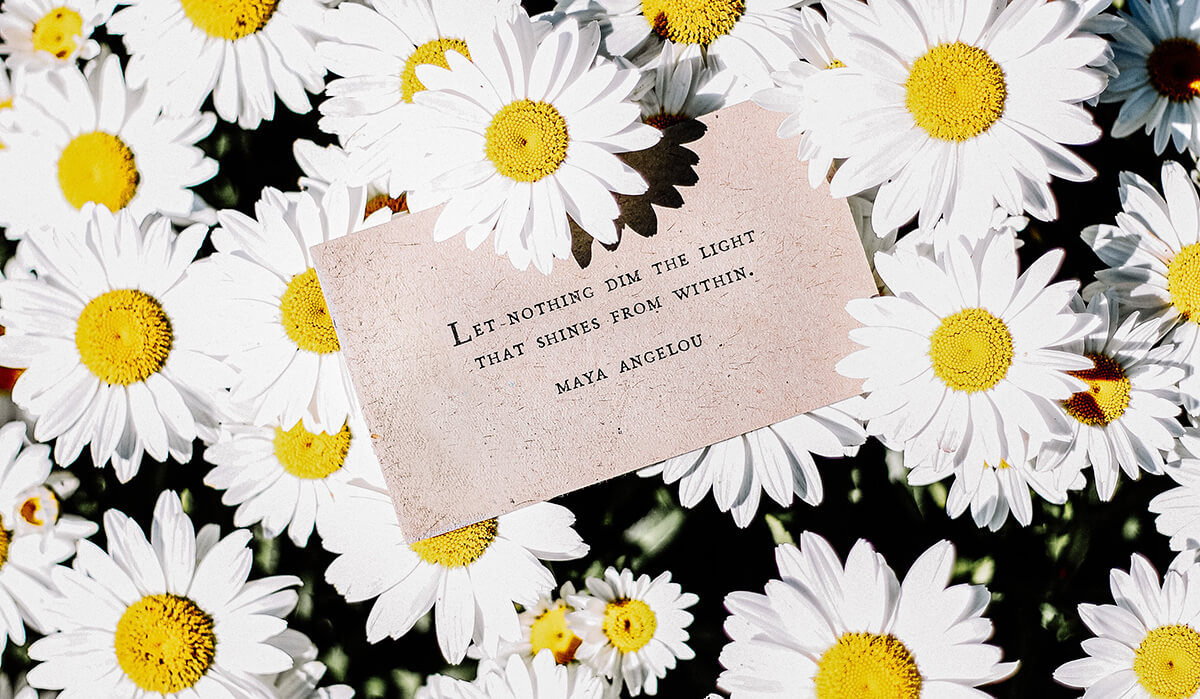Poetry Written by Black Poets You Should Read
Throughout history, Black people have suffered atrocities, and after centuries of progress, it is still imperative to raise awareness about persisting, pervasive inequity and work to create much-needed change. The Black Lives Matter movement has brought deep-rooted and unresolved problems to the screens and streets: namely police brutality, racism, and white privilege. However, recognizing the issue is only the first step towards its eradication. Educating ourselves and others is one of the best ways to make a permanent transformation.
Poet Langston Hughes asserts in his essay 200 Years of American Negro Poetry: “Art is to be an intensification or enlargement of life, or to give adequate comment on what living is like in the poet’s own time.”
Below are three poems from Black voices you should include in your reading list.
“Ballad of Birmingham” by Dudley Randall
“Mother dear, may I go downtown
Instead of out to play,
And march the streets of Birmingham
In a Freedom March today?”
“No, baby, no, you may not go,
For the dogs are fierce and wild,
And clubs and hoses, guns and jails
Aren’t good for a little child.”
“But, mother, I won’t be alone.
Other children will go with me,
And march the streets of Birmingham
To make our country free.”
“No baby, no, you may not go
For I fear those guns will fire.
But you may go to church instead
And sing in the children’s choir.”
She has combed and brushed her night-dark hair,
And bathed rose petal sweet,
And drawn white gloves on her small brown hands,
And white shoes on her feet.
The mother smiled to know that her child
Was in the sacred place,
But that smile was the last smile
To come upon her face.
For when she heard the explosion,
Her eyes grew wet and wild.
She raced through the streets of Birmingham
Calling for her child.
She clawed through bits of glass and brick,
Then lifted out a shoe.
“O, here’s the shoe my baby wore,
But, baby, where are you?”
This touching poem presents a dialogue between a mother and daughter. The daughter wishes to join the Freedom March but she is warned by her mother that it is far too dangerous. Instead, the girl goes to church. The last lines expose that even this sacred place is not safe.
“Caged Bird” by Maya Angelou
A free bird leaps
on the back of the wind
and floats downstream
till the current ends
and dips his wing
in the orange sun rays
and dares to claim the sky.
But a bird that stalks
down his narrow cage
can seldom see through
his bars of rage
his wings are clipped and
his feet are tied
so he opens his throat to sing.
The caged bird sings
with a fearful trill
of things unknown
but longed for still
and his tune is heard
on the distant hill
for the caged bird
sings of freedom.
The free bird thinks of another breeze
and the trade winds soft through the sighing trees
and the fat worms waiting on a dawn bright lawn
and he names the sky his own
But a caged bird stands on the grave of dreams
his shadow shouts on a nightmare scream
his wings are clipped and his feet are tied
so he opens his throat to sing.
The caged bird sings
with a fearful trill
of things unknown
but longed for still
and his tune is heard
on the distant hill
for the caged bird
sings of freedom.
In the above piece, also known as “I Know Why The Caged Bird Sings,” Angelou describes the behavior of two birds. They are used as a metaphor to contrast the experiences of Black people and white people.
“Who But The Lord?” by Langston Hughes
I looked and I saw
That man they call the Law.
He was coming
Down the street at me!
I had visions in my head
Of being laid out cold and dead,
Or else murdered
By the Third Degree.
I said, Oh, Lord, if you can,
Save me from that man!
Don’t let him make a pulp out of me!
But the Lord he was not quick-
The Law raised up his stick
And beat the living hell
Out of me!
Now, I do not understand
Why God don’t protect a man
From police brutality.
Being poor and black,
I’ve no weapon to strike back-
So who but the Lord
Can protect me?
Hughes’ poem addresses racism in the 1940s. The poem discusses abuse of power by the police, as well as the lament and suffering of a Black man. It was written in a time of profound racial turbulence in America along with the fight for civil rights for African Americans.
For more Black-authored poetry to add to your reading list, check out this roundup of full-length collections written by Black poets.




